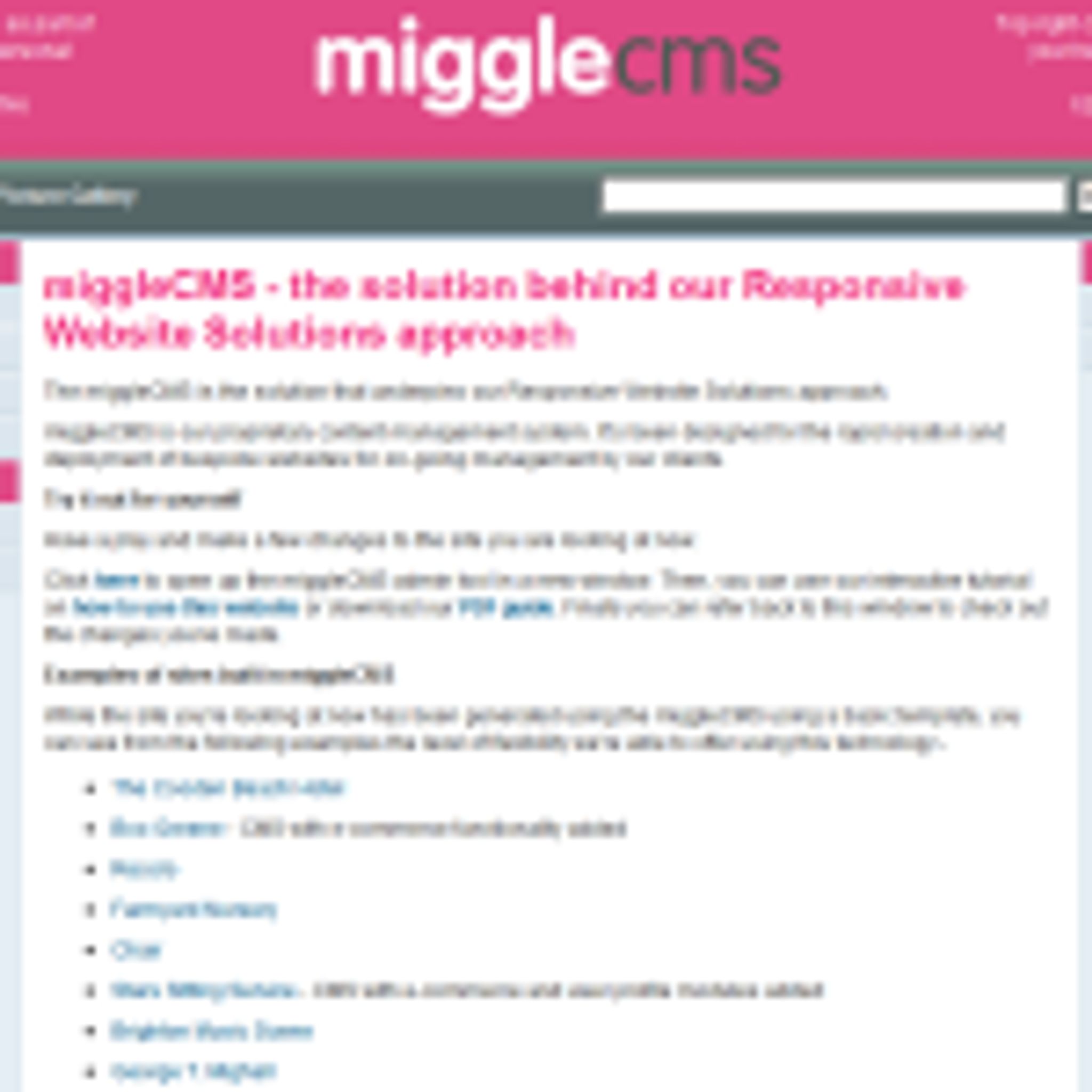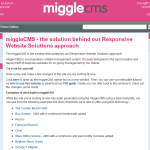miggle.co.uk launch miggleCMS, their PHP/MySQL content management system under an open source license


From the release announcement: As a business miggle.co.uk is fully committed to using and supporting open source software wherever it can. We believe open source solutions, when implemented effectively, offer customers and users the best possible options in terms of balancing unique requirements, with leveraged R&D, in an environment where BCP (business continuity planning) issues are largely taken care of. It would be counter to our believe in that approach to continue to keep our CMS, miggleCMS, as a proprietary tool. Nor would doing so be in the best interests of the BCP requirements of our clients who use it.
The world does not need another content management system (CMS). I truly believe that. But, like many web businesses we found ourselves in a position three years ago where it made sense for us to have our own CMS to provide a solution to small businesses, which we didn’t feel we could easily or efficiently achieve with what was available at the time, to the flexibility we wanted. Three years on, we’ve now used miggleCMS on over 30 sites, from simple brochure ware sites, to e-commerce solutions with stock control.
No single CMS will ever fulfil the needs of all web requirements. It’s often a case, when choosing a potential CMS, of looking at product requirements, distinguishing between ‘must haves’ and ‘nice to haves’ and making the appropriate trade-offs if required. Because of this, we don’t think there’s any more developments we need to make right now to miggleCMS, because to do so, in our opinion, would put us on a path where basically we would be starting to re-write Joomla. Which is pointless. At that point, we’d be better off just using Joomla. But by opening miggleCMS up as an open source product, our opinion on that becomes just one opinion. Others may look at our code and think there are areas in which it could be improved or developed on. Maybe add an Ajax front end, maybe a deeper depth of categorisations, maybe the addition of payment provider support beyond Paypal? Also, because pages can have modules attached to them, there’s scope for this to have additional functionality added without the need for a full re-write. Modules could be written in the same sort of way plug-ins are for WordPress. By throwing this over the fence, we leave it to the open source development community to decide.
The final reason we’ve done it is because miggleCMS has been a useful tool in helping small businesses, with 5-10 pages, get decent looking sites online cost effectively. Now that as a business we’re moving away from that market, beyond providing existing clients with better BCP options, this CMS, like so many others, acts as a code base to which you just need to BYOD – Bring your own designer!
So, if you’ve not clicked through already, take a look at miggleCMS.